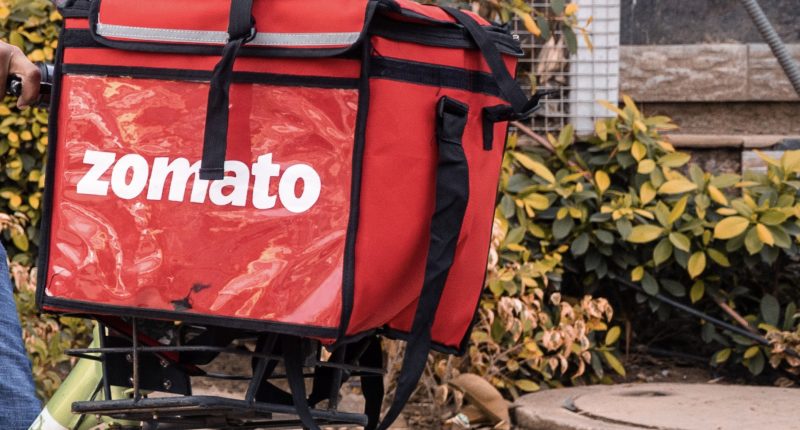Zomato parent Eternal, reported a 90% year-on-year decline in net profit for the first quarter (Q1) of FY26. The company reported a profit of ₹25 crore, down from ₹253 crore in the same quarter of the previous year. This decline came despite a 70% rise in revenue from operations, which rose to ₹7,167 crore from ₹4,206 crore.
Meanwhile, on a quarter-on-quarter basis, profit fell by around 36% from ₹39 crore in Q4 FY25, while revenue increased by 23% from ₹5,833 crore. The decline in profit was primarily due to a sharp increase in expenses. Costs went up as the company expanded its operations, particularly in quick commerce and new business segments. Notably, the quick commerce business, Blinkit, was a major contributor to revenue growth.
Blinkit’s revenue more than doubled to ₹2,400 crore from ₹942 crore in the same quarter last year, reflecting a year-on-year growth of 154%. The company expanded its dark store network by adding 243 new outlets, taking the total to 1,544 stores by the end of the quarter. Its warehousing capacity also increased by 0.4 million square feet, now totalling 5.6 million square feet. Most importantly, Blinkit’s net order value crossed that of the company’s food delivery business, Zomato, for the first time.
At the same time, the core food delivery business grew more slowly but remained profitable. Revenue from this segment (aka Zomato) stood at ₹2,261 crore, up 16% year-on-year. While growth was modest, the segment continued to generate a positive margin, with adjusted EBITDA improving to 5% of net order value from 3.9% a year earlier.
Additionally, another growing area for Eternal is its new business, District, which focuses on dining and experience-based services. This segment now generates an annualized net order value of around ₹8,000 crore and has grown more than 30% compared to the previous year. The average revenue per order in this segment is above ₹160. The parent company expects this vertical to scale up to a $3 billion net order value business in the next five years.
However, despite the strong revenue performance across all verticals, total expenses increased sharply by around 79% to ₹7,433 crore in Q1 FY26. This increase in spending affected overall profitability, with adjusted EBITDA falling 42% year-on-year to ₹172 crore. The quick commerce segment, in particular, continues to operate at a loss, with an EBITDA margin of -1.8% of net order value.
The latest revenue results come at a time when the company is facing challenges and controversies on multiple fronts. For example, in April 2025, Zomato’s food delivery CEO Rakesh Ranjan stepped down after nearly two years in the role, adding to a series of top-level exits that have raised questions around leadership stability. Just a month earlier (in March 2025), the Competition Commission of India (CCI) opened an investigation into the company’s quick commerce arm, Blinkit, following complaints from distributor associations. The allegations accuse Blinkit and its competitors of engaging in predatory pricing practices that threaten traditional retail ecosystems. Additionally, industry bodies like FHRAI and NRAI are said to be preparing legal action, alleging that Zomato has become a direct competitor through its private-label food brands like Bistro (Blinkit’s 10-minute kitchen service).
The Tech Portal is published by Blue Box Media Private Limited. Our investors have no influence over our reporting. Read our full Ownership and Funding Disclosure →






